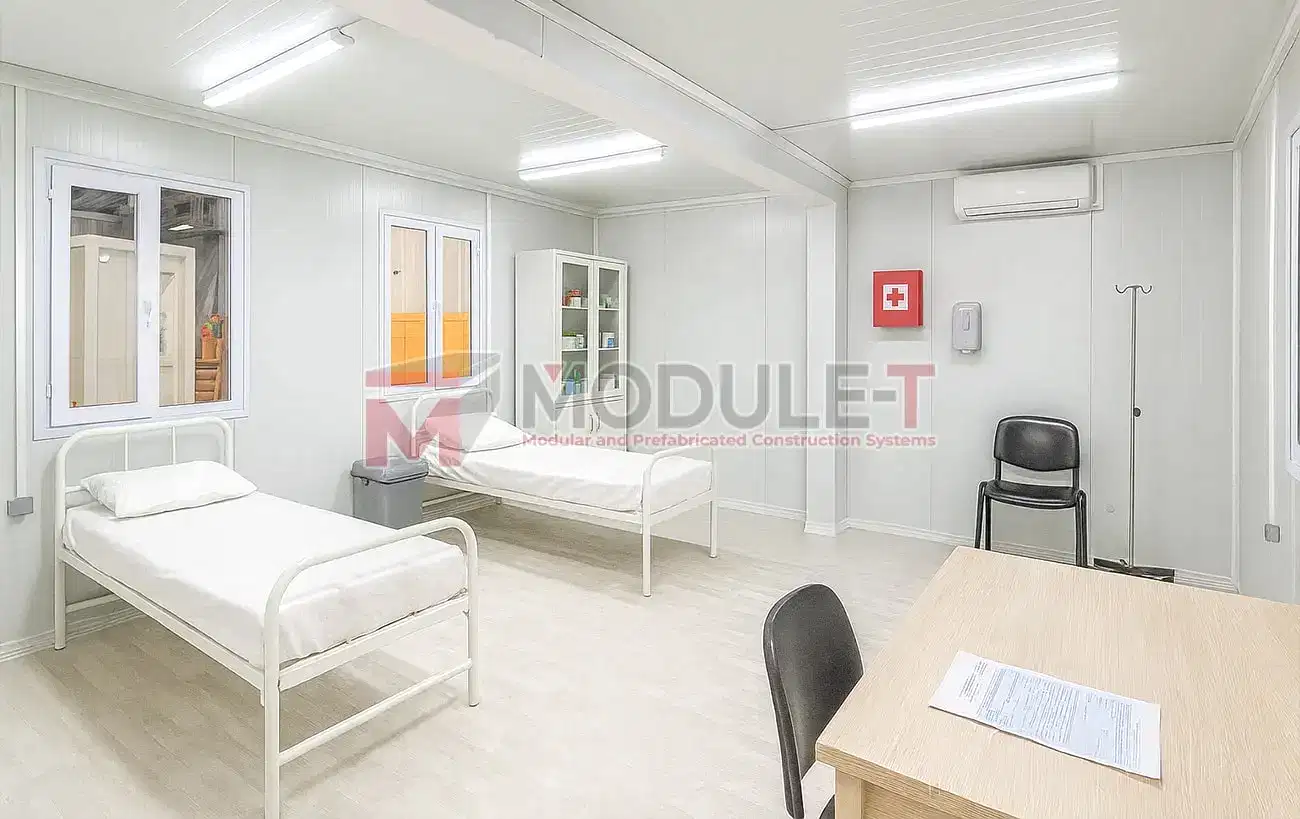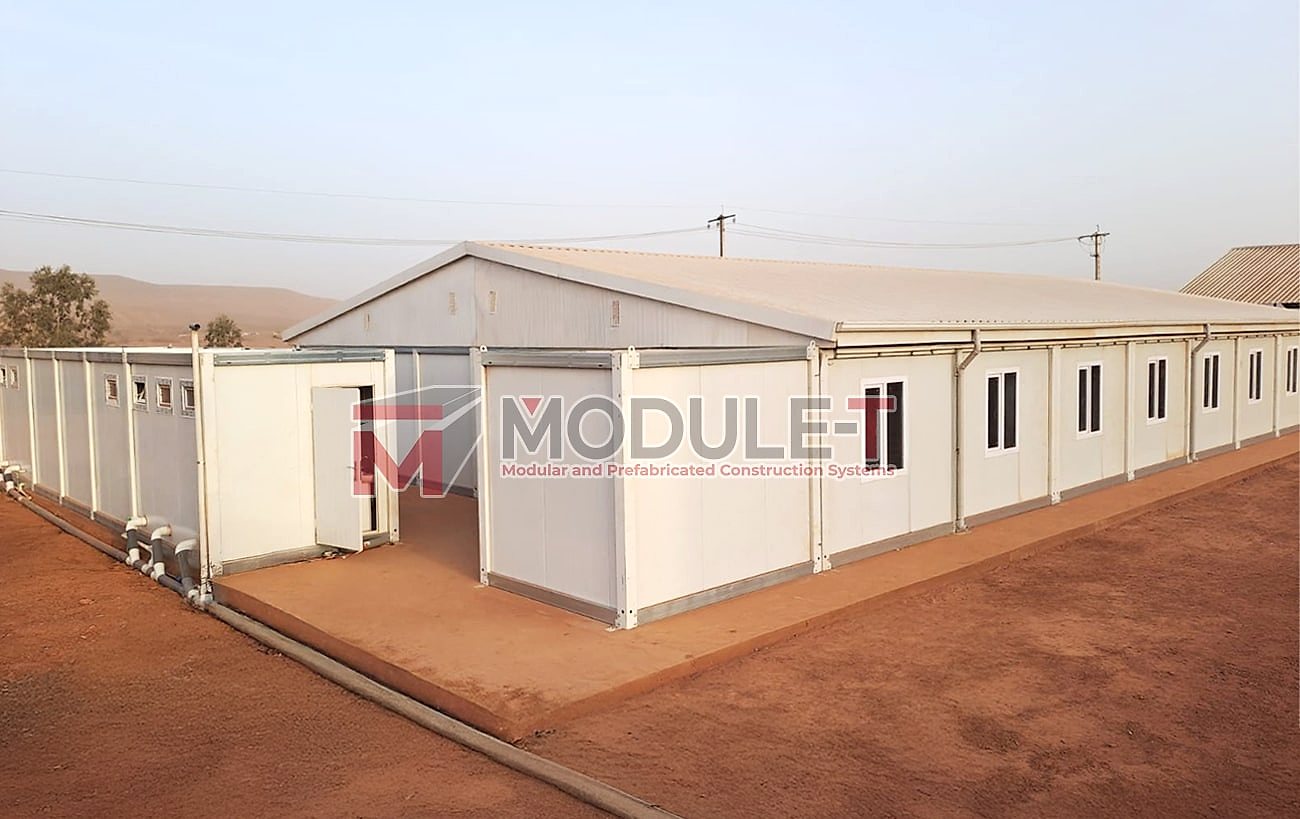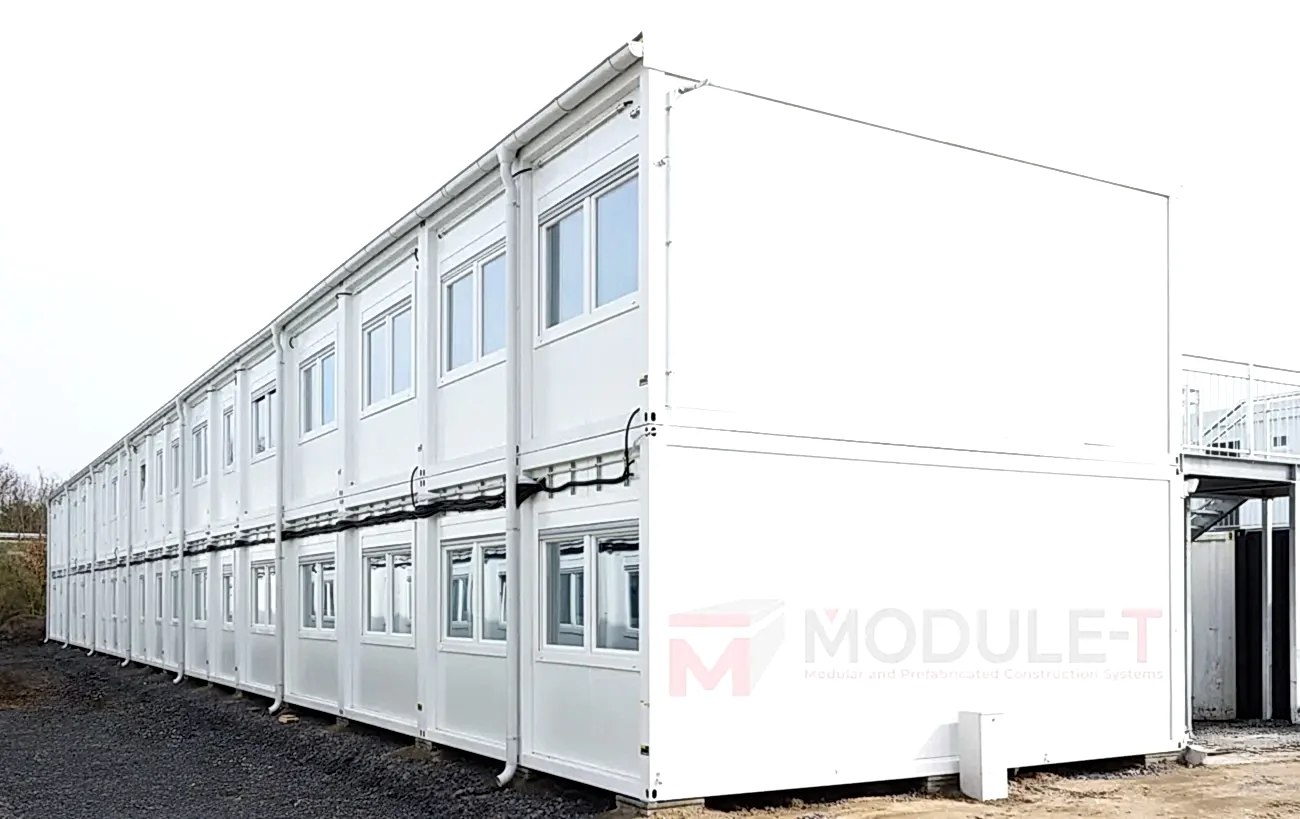Our sales teams and call center are ready to help you.

- Solutions
- Flatpack Containers
- Office Containers
- Sanitary Containers
- Locker Containers
- Dormitory Containers
- Accommodation Containers
- Projects
- Products
- Contact
- Request a Quote
The health sector presents unique challenges when it comes to infrastructure, demanding efficient, cost-effective, and rapidly deployable solutions. Providing quality healthcare facilities in urban and remote areas is essential for public well-being. Modular construction has emerged as a leading solution for quickly building resilient and adaptable healthcare buildings, especially in urgent situations. From modular hospitals to specialized medical units, modular healthcare buildings are revolutionizing how healthcare infrastructure is designed and delivered.
Modular healthcare buildings are specially designed structures built using prefabrication techniques, which make them faster to produce and install than traditional construction methods. A modular hospital refers to facilities built in off-site sections and assembled in the desired location, offering functionality similar to conventional healthcare buildings.
Modular healthcare buildings can include specialized units like modular MRI buildings, which provide the infrastructure for high-end diagnostic equipment, or modular veterinary clinics, which offer veterinary services with the same convenience and adaptability as other modular healthcare solutions. With modular building systems, it’s possible to design facilities such as a modular medical clinic with custom medical clinic building plans to efficiently cater to community needs.

Modular healthcare buildings provide many benefits, making them an attractive option for expanding or upgrading healthcare infrastructure. One significant advantage is the speed of deployment. Modular hospital construction takes much less time than building a traditional hospital from the ground up, making it ideal for rapid expansion, such as during a public health crisis.
Cost efficiency is another key benefit. Prefabricated hospitals and other modular units are produced in a controlled factory setting, minimizing material waste and labor costs and reducing the overall budget. These units’ adaptability means that healthcare facilities can be expanded or reconfigured as needed without the substantial time or financial investment that comes with conventional construction. Moreover, modular hospital buildings are designed with high-quality materials that meet stringent healthcare standards, ensuring patient safety and comfort. With advancements in modular building systems, these structures can incorporate specialized areas such as container toilets or diagnostic spaces, delivering comprehensive healthcare building solutions.


The applications of modular healthcare buildings are vast and adaptable. Modular medical clinics provide primary and emergency healthcare services in locations that require temporary or portable solutions. In rural or underserved areas, modular hospitals can be deployed to improve healthcare access, offering everything from general treatment areas to specialized care units.
Similarly, modular veterinary clinics are crucial in ensuring animal healthcare, providing a comfortable and fully functional space for veterinary services. The versatility of medical clinic building plans allows for customization, from small family clinics to larger community health centers. The use of modular MRI buildings also underscores the flexibility of these solutions, enabling healthcare providers to extend their diagnostic capabilities efficiently.
For those interested in incorporating flexible, high-quality healthcare building solutions into their projects, Module-T offers a range of customizable modular options. Our modular healthcare buildings are designed to meet the rigorous demands of the health sector, providing fast, reliable, and effective infrastructure. Visit our website today to discover how we can elevate your healthcare projects.